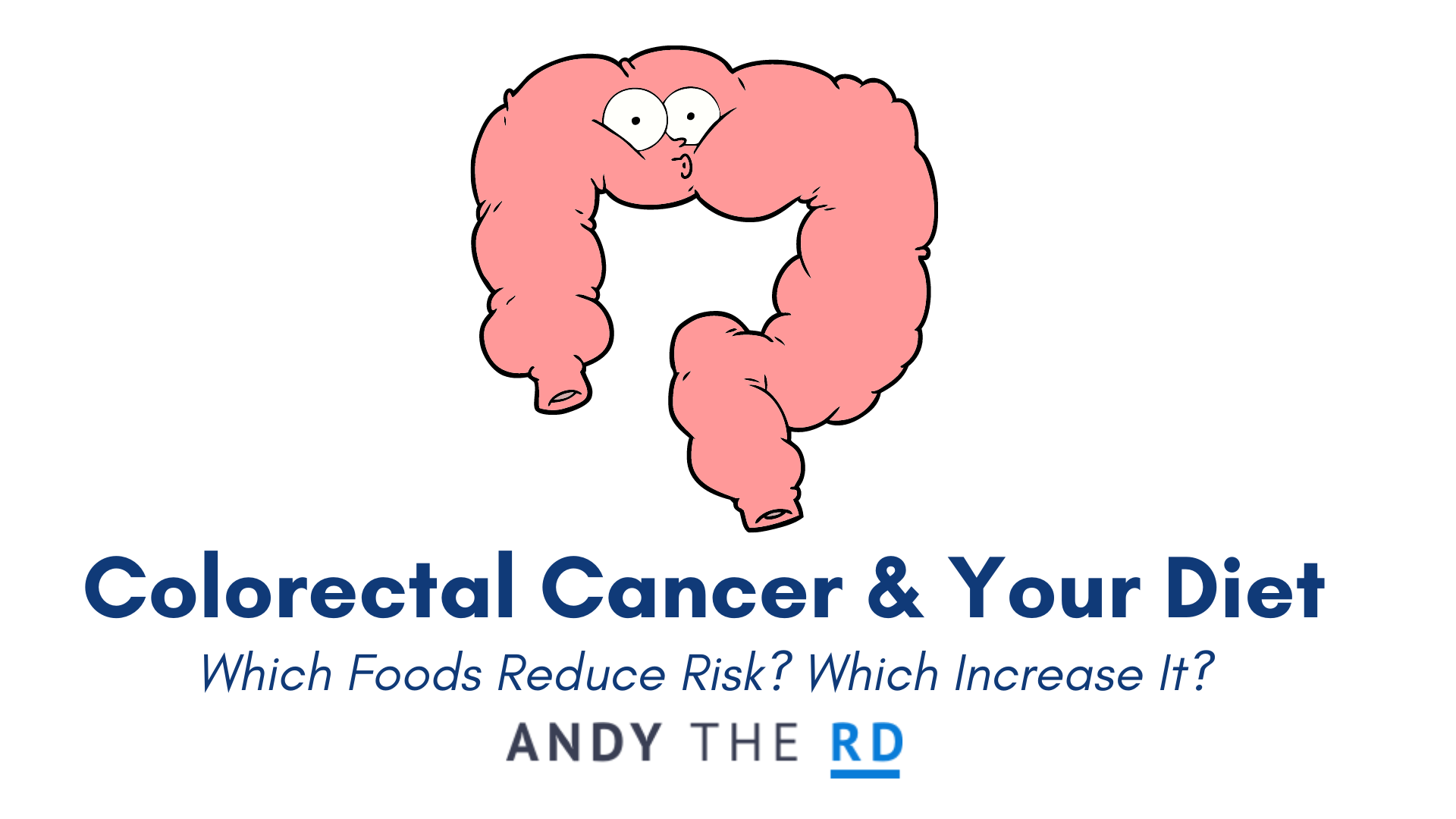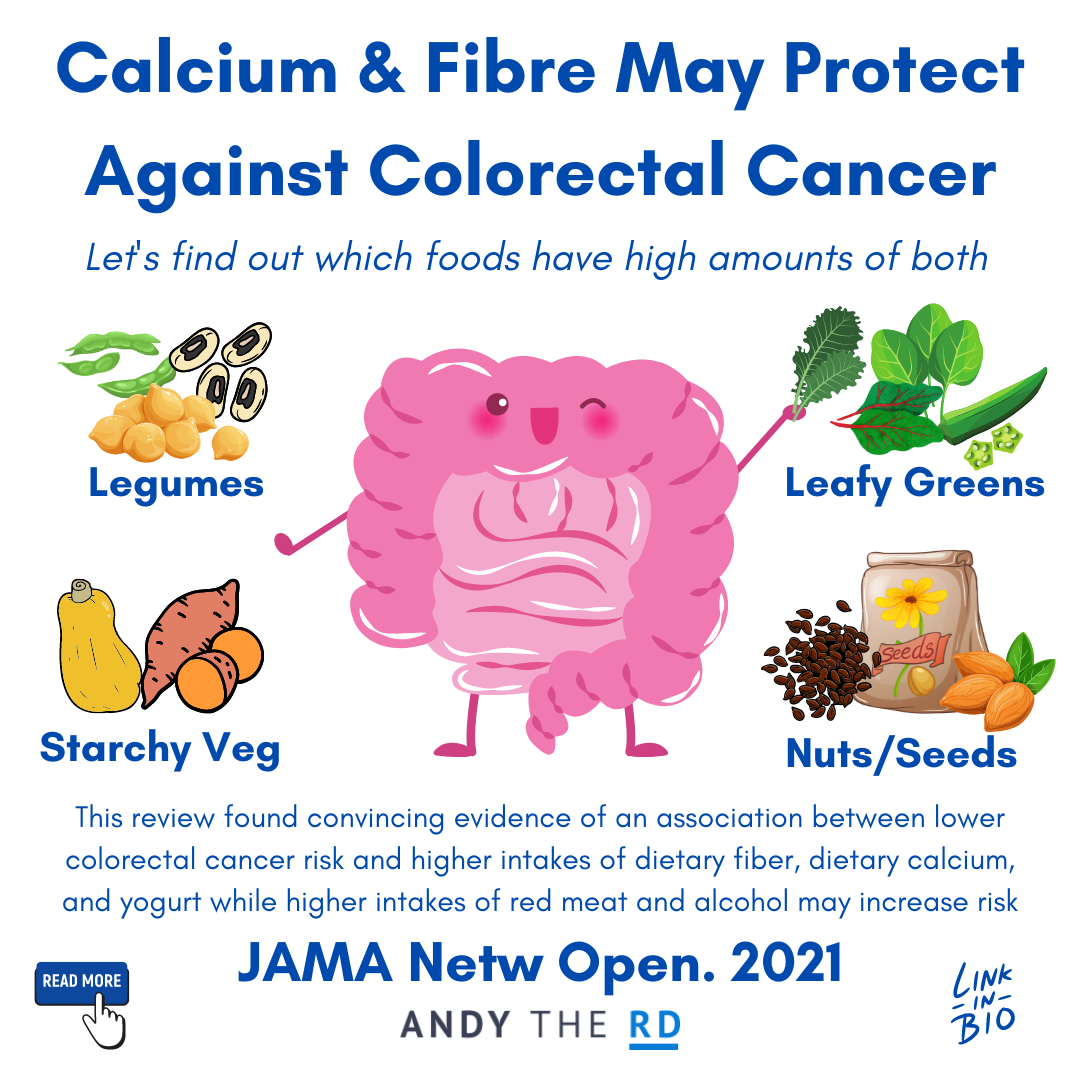Today’s post is intended to be an objective look at the best available data in the field of Colorectal Cancer research, while also acknowledging that enhanced screening, diagnosis and treatment has meant that cases and deaths due to colorectal cancer have been steadily declining here in Canada.
Even so, the Canadian Cancer Society expects colorectal cancer to be the third most diagnosed cancer in Canada this year.
It represents the second leading cause of death from cancer in men, and ranks third in cancer-related deaths in Canadian women.
In other words, this is not a subject to be taken lightly.
So what can we do about it from the nutrition perspective?
Diet & Nutrition In Colorectal Cancer Prevention
There are a number of dietary considerations when it comes to colorectal cancer prevention.
A World Cancer Research Fund Report from 2017 determined there was convincing evidence that:
- Processed meat increases colorectal cancer risk ( Sausages, hot dogs, salami, ham, bacon, corned beef etc)
- Alcohol consumption > 30 grams daily ( ~>2 drinks per day, ~15 per week) increases colorectal cancer risk
- Physical activity reduces colorectal cancer risk
That same report determined that there was probable evidence that:
- Red meat intake increases colorectal cancer risk**
- Dietary fibre intake ( fibre is found in legumes, fruits, veggies, whole grains, nuts, seeds) consumption reduces colorectal cancer risk
- Calcium intake reduces colorectal cancer risk ( including yogurt)
** I appreciate that red meat is a widely enjoyed group of foods and so it’s important to understand I’m not blanket demonizing it, rather let’s explore the intake amounts which were associated with increased risk.
Red Meat & Colorectal Cancer Risk – Quantified
A recently published study out of the International Journal of Epidemiology found that those who consumed an average of ~75 grams of red + processed meat per day had a 20% increase in colorectal cancer risk as compared to those who consumed ~20 grams per day.
75 grams per day equates to 525 grams per week or 18.5 oz per week.
20 grams per day equates to 140 grams per week or 5 oz per week.
As was found in the World Cancer Research Fund report discussed in the previous section, processed-meat intake contributes more risk per gram than red meat intake.
A 2017 paper out of the Gastroenterology recommends avoiding processed meat whenever possible while keeping red meat consumption to <50 grams per day in order to minimize colorectal cancer risk.
That’s less than 350 grams or 12 oz per week, meaning you can still have that juicy 10 oz steak on Saturday night.
I’m not telling you NOT to have red meat, just don’t have ONLY red meat.
Diversify Your Protein Intake
If you feel as though you rely on red meat intake well beyond these weekly totals, you may be well served to diversify your intake of protein and work in more legumes, nuts, seeds and fish – doing so will almost inevitably offer you increased longevity and defense against a variety of other conditions.
It will also increase your fibre and calcium intake because many non-meat protein sources contain these protective nutrients.
Final Thoughts
Today’s article offers a mere snapshot into the available evidence surrounding dietary intake and colorectal cancer risk.
While certainly not offering any earth shattering findings, it does reinforce the message that I constantly preach – DIVERSIFY YOUR PROTEIN INTAKE.
I actually consider this single step the most important change that just about anyone can take to improve their health.
Until next time,
Andy De Santis RD MPH
Examine the infographic above closely, the food graphics used are NOT random – they indicate the precise foods high in both calcium and fibre.




